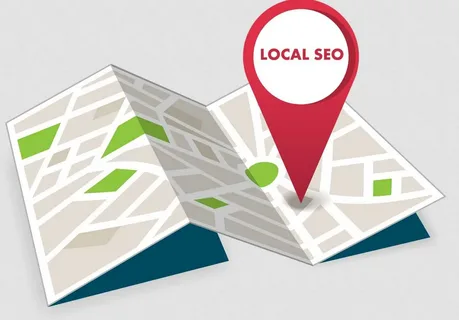If you’re a business owner in the Sunshine State, you already know how competitive things can get. From bustling cities like Miami and Orlando to fast-growing hubs like Kissimmee and Tampa, standing out locally isn’t just a goal—it’s a necessity. That’s where Local SEO in Florida becomes your secret weapon.
Local SEO (Search Engine Optimization) helps your business appear in local search results when potential customers are looking for services or products you offer—right in your area. Whether you’re a café owner in St. Pete or a mechanic in Jacksonville, optimizing your local SEO can bring a steady stream of nearby customers through your doors.
But here’s the catch—local SEO isn’t just about adding your address to your website. It’s a blend of strategy, relevance, and technical precision tailored to your local audience. In this article, we’ll break down 10 actionable tips to help your business thrive in Florida’s competitive digital landscape. These aren’t just generic suggestions—they’re tried and tested methods that align with Google’s latest algorithm updates and can genuinely elevate your visibility. Ready to get noticed? Let’s dive in.
1. Optimize Your Google Business Profile
Your Google Business Profile (formerly Google My Business) is your local SEO foundation. It’s what shows up on the right side of a Google search and in the local 3-pack map results.
-
Make sure your NAP (Name, Address, Phone number) is accurate and matches your website and directories.
-
Choose the right primary and secondary business categories.
-
Upload high-quality photos of your business—inside and out.
-
Encourage happy customers to leave detailed reviews.
-
Use posts to share updates, promotions, or events.
Google uses this profile to decide which businesses to show for local intent searches. A fully optimized profile can directly boost your local visibility and build trust with potential customers nearby.
2. Use Location-Specific Keywords Naturally
While keyword stuffing is a no-go, incorporating location-specific keywords in a natural way can work wonders.
For example, instead of just saying “digital marketing agency,” say “digital marketing agency in Orlando” or “SEO services near Kissimmee.” You can add these organically in:
-
Service pages
-
Meta titles and descriptions
-
Blog content
-
Image alt text
Remember, context matters. Always write for humans first and search engines second. Your content should read smoothly, as if you were talking to a customer face-to-face.
3. Ensure Consistency Across Online Directories
Inconsistencies in your business listings across platforms like Yelp, Facebook, Bing, and local directories can confuse Google and hurt your rankings.
To fix this:
-
Audit all your existing listings.
-
Use a tool like Moz Local or BrightLocal to find inconsistencies.
-
Manually or automatically update listings so that your NAP is identical everywhere.
Consistency builds trust—not just with search engines, but with customers too.
4. Create Localized Website Content
You don’t need a separate page for every city in Florida, but adding location-specific content can help you rank in multiple areas.
Here are a few ideas:
-
Write blog posts about local events or news relevant to your industry.
-
Create case studies or testimonials from Florida-based clients.
-
Add landing pages tailored to different service areas (e.g., “Web Development Services in Tampa”).
Localized content signals to Google that you’re an active, engaged business in the area—and that’s SEO gold.
5. Get More Online Reviews (And Respond to Them)
Reviews are powerful. Not only do they influence new customers, but they also tell Google that your business is active and trustworthy.
To encourage more reviews:
-
Ask satisfied customers right after a purchase or service.
-
Send a follow-up email or SMS with a direct review link.
-
Make it easy with QR codes on receipts or signage.
Don’t forget to respond to reviews—both good and bad. A thoughtful response shows that you care and keeps your engagement levels high in Google’s eyes.
6. Use Schema Markup for Local SEO
Schema markup (or structured data) helps search engines understand your content better. For local SEO, using the Local Business schema can enhance how your listing appears in search.
Benefits include:
-
Rich snippets with your rating, business hours, and service area.
-
Improved click-through rates from search results.
-
Better alignment with Google’s algorithms.
It might sound technical, but tools like Google’s Structured Data Markup Helper make it easier than it looks.
7. Build Local Backlinks
Backlinks from reputable local sources can boost your site’s authority and local relevance.
Here’s how to get them:
-
Partner with local organizations, events, or charities.
-
Get listed in local chambers of commerce or business directories.
-
Contribute guest posts to local news sites or blogs.
Each local link is like a vote of confidence, telling search engines that your business is part of the community.
8. Leverage Social Media for Local Engagement
Social signals may not directly influence rankings, but they drive traffic and engagement, which indirectly helps SEO.
Here’s what to do:
-
Tag your location in every post.
-
Share behind-the-scenes content from your Florida store or team.
-
Promote local events and tag other businesses in your community.
Being socially active keeps your business top-of-mind and encourages more branded searches—which do affect SEO.
9. Optimize for Mobile Search
With most local searches happening on mobile devices, a mobile-friendly site isn’t optional—it’s essential.
Make sure your site:
-
Loads quickly (under 3 seconds).
-
Is easy to navigate on smaller screens.
-
Has clickable phone numbers and address buttons.
Google prioritizes mobile-first indexing, so your mobile experience directly impacts your local rankings.
10. Monitor and Adjust with Local SEO Tools
Finally, what gets measured gets managed. Use tools to track your progress and adapt your strategy.
Top tools for local SEO include:
-
Google Search Console (free insights into your performance)
-
Google Analytics 4 (track location-based visits)
-
BrightLocal or Whitespark (audit and track local rankings)
Staying proactive with your data allows you to pivot when trends or algorithms shift—keeping you ahead of competitors.
Final Thoughts
Mastering Local SEO in Florida isn’t just about getting more web traffic—it’s about getting the right traffic. Customers nearby, ready to take action. These ten tips, when applied consistently, can help your business rise above the noise and become the go-to option in your area.
If you’re ready to take your local visibility to the next level, visit NovusWeb.tech and discover how we can tailor your SEO strategy for long-term local success.
Want help implementing these tips? Let’s talk. Your customers are searching for you—make sure they can find you.












































